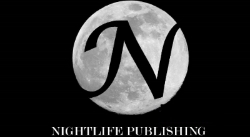Many successful writers advise other writers to read more than they write. I enjoy reading, so I accepted the advice without much fight. I set out to read thirty books in 2014 and according to my tracking on Good Reads, I managed to get through forty books this year. A few books were horrible, several were excellent. To look back on my year, I’ve compiled a list of my favorite books for 2014.
Keep in mind this list is for books I read this year, I’m not worried about when the book was released. I also don’t care about format. I read a combination of print, e-book, graphic novel and audio book. I’m concerned with content, not medium. The list includes fiction, non-fiction, how to and humor because I try to be well rounded...
10. The Curriculum by Stanley Bing (audio book): This humorous crash course in business combines concepts in his earlier books (How to Throw an Elephant and What Would Machiavelli Do?) It’s not a funny as the first two books, but it offers more practical advice with it’s laughs.
9. Elektra: Relentless by Rob Rodi and Sean Chen (graphic novel): This book has all the elements of a great Marvel Knights book. It’s a self -contained, character driven story that focuses as more on the humanity of the supporting cast than the “hero” who is almost a force of nature.
8. Words for Pictures by Brian Michael Bendis: Most people see comics as a hobby for nerds and children. A few people see the potential for money with all the movies and TV shows. Word for Pictures focuses on the business and the craft of creating comics in a way I haven’t seen for more than twenty five years.
7. Call for the Dead by John Le Carre (audio book): This turned out to be my least favorite book from one of my favorite authors. Le Carre retains all his skill in creating setting, characters and an intricate spy plot, but the ending he chose seemed forced and unsatisfying.
6. Handbook of Practical Spying by Jack Barth: This light hearted book from the International Spy Museum in Washington manages to offer a lot of real world advice, some historical context and without being dry or convoluted. It’s a painless introduction to modern tradecraft.
5. Being Wrong by Kathryn Shulz (audio book): This exploration of the physical, mental, social, and historical sources of mistakes is disturbing and enlightening at the same time. It doesn’t cover every aspect of error, but it covers enough ground to make you wonder how we haven’t managed to destroy the entire planet by now.
4. Graveyard of Memories by Barry Eisler (audio book): This is the origin story for the iconic assassin John Rain (soon to be played by Keannu Reves). It contains all the elements of a great Eisler story (meticulous tradecraft, psychological insight and lush settings) but the formula for the story will be familiar to anyone who has read a Rain story before. It’s like listening to your favorite band play live. You know what they’re going to play, but you’re still amazed when they play it.
3. Sexual Intelligence by Marty Klein: Most sex help books focus on technique or trying to get you back to some golden age of performance in your past. This book focuses on your present and future sexual expression by helping you get past technique and into physical and emotional connection. It rejects performance for pleasure and covers a wide range of sexual situations and examples. The main problem with this book is the people who read it probably don’t need it and the people who need it probably won’t read it.
2. Write, Publish, Repeat by Johnny B. Truant: It’s hard for me to listen to the podcast this book came from (The Self-Publishing Podcast) because the three hosts are friends who work together and spend two thirds of their time on the air self-promoting or meandering off topic. But these three writers have a deep understanding of the business and craft of independent publishing and what it takes to be successful. A lot of my ideas and inspiration to write came from this book when I read it the first time and it is even better the second time around. If you ever thought about writing a book, read this book first.
1. Talk Dirty to Me by Sallie Tisdale: In a lifetime of reading books, only a handful will be transcendent. Talk Dirty to Me is one of those books for me. This intimate philosophy of sex explores the subject from fundamental questions of attraction, desire and expression and unpacks issues like pornography, prostitution, sexual identity and sexual repression in a thoughtful voice free of shame or blame. Talk Dirty to Me is a book that I’d like to read several more times. It’s not only my favorite books of 2014. It’s one of the best books I’ve read in ten years.
So what was your favorite book of 2014? Comment below and let me know.
Have fun and Happy New Year.
G







